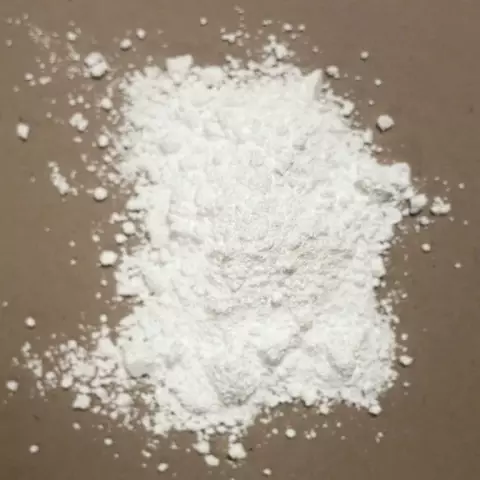- Author Rachel Wainwright wainwright@abchealthonline.com.
- Public 2023-12-15 07:39.
- Last modified 2025-11-02 20:14.
The effect of antibiotics on the human body

With the discovery of penicillin in 1928, a new era began in human life, the era of antibiotics. Few people think that before this discovery for millennia, the main danger to humans was precisely infectious diseases, which periodically assumed the scale of epidemics, mowing down entire regions. But even without epidemics, mortality from infections was extremely high, and the low life expectancy, when a 30-year-old person was considered elderly, was due precisely to this cause.
Antibiotics turned the world upside down, changed life, if not more than the invention of electricity, then certainly not less. Why are we wary of them? The reason is the ambiguous effect of these drugs on the body. Let's try to figure out what this effect is, and what antibiotics have actually become for people, salvation or a curse.
Drugs against life?
"Anti bios" translated from Latin means "against life", it turns out that antibiotics are drugs against life. Chilling definition, isn't it? In fact, antibiotics have saved millions of lives. The scientific name for antibiotics is antibacterial drugs, which more closely matches their function. Thus, the action of antibiotics is not directed against a person, but against microorganisms that enter his body.
The danger is that most antibiotics affect not one pathogen of a particular disease, but entire groups of microbes, where there are not only pathogenic bacteria, but also those that are necessary for the normal functioning of the body.
It is known that the human intestine contains about 2 kg of microbes - a huge amount, mainly bacteria, without which the normal functioning of the intestine is impossible. Beneficial bacteria are also present on the skin, in the mouth and vagina - in all places where the body can come into contact with a foreign environment. Different groups of bacteria coexist in balance with each other and with other microorganisms, in particular, with fungi. Imbalance leads to an excessive growth of antagonists, the same fungi. This is how dysbiosis develops, or an imbalance of microorganisms in the human body.
Dysbacteriosis is one of the most common negative consequences of taking antibiotics. Its particular manifestation is fungal infections, a bright representative of which is the well-known thrush. That is why, when prescribing antibiotics, the doctor usually prescribes drugs that help restore microflora. However, such drugs should be taken not during antibiotic therapy, but after it.
It is clear that the more powerful the drug is taken and the wider its spectrum of action, the more bacteria will die. That is why it is advisable to use antibiotics of a wide spectrum of action only in case of emergency, and in all other situations, select a drug with a narrow spectrum of action, which has a targeted effect only on small, necessary groups of bacteria. This is an important measure for the prevention of dysbiosis during antibiotic therapy.
The harmful effects of beneficial drugs
It has long been established that harmless drugs do not exist in nature. Even the most harmless drug, if used incorrectly, causes undesirable effects, let alone such powerful drugs as antibiotics.
It should be understood that side effects are a possible, but not necessary, consequence of taking antibacterial agents. If the drug has been tested and accepted into clinical practice, this means that it has been unequivocally and convincingly proven that its benefits for most people significantly outweigh the possible harm. Nevertheless, all people have peculiarities, the reaction of each organism to a drug is determined by hundreds of factors, and there are a number of people whose reaction to the drug, for one reason or another, turned out to be rather negative.
Possible adverse reactions are always listed in the side effects list of any medication. In antibiotics, the ability to cause side effects is quite pronounced, since they have a powerful effect on the body.
Let's dwell on the main undesirable consequences of taking them:
- Allergic reactions. They can manifest themselves in different ways, most often it is a skin rash and itching. Any antibiotics can cause allergies, but most often they are cephalosporins, beta-lactans and penicillins;
- Toxic effects. Especially vulnerable in this respect are the liver, which performs the function of cleaning the blood from poisons in the body, and the kidneys, through which toxins are removed from the body. In particular, antibiotics of the tetracycline series have a hepatotoxic effect, and aminoglycosides, polymexins and some of the cephalosporins have a nephrotoxic effect. In addition, aminoglycosides can cause permanent damage to the auditory nerve, leading to deafness. Fluoroquinolones and antibacterial agents of the nitrofuran series also have a damaging effect on nervous structures. Levomycetin has a toxic effect on the blood and on the embryo. Antibiotics of the amphenicol group, cephalosporins and some types of penicillin are known to have a negative effect on the process of hematopoiesis;
- Suppression of immunity. Immunity is the body's defenses, its "defense", which protects the body from the invasion of pathogenic agents. Suppression of immunity weakens the body's natural defenses, which is why antibiotic therapy should not be excessively long. To one degree or another, immunity suppresses most antibacterial drugs, the most negative in this regard is the effect of tetracyclines and the same chloramphenicol.
Thus, it becomes clear why doctors insist that patients should never, under any circumstances, self-medicate, let alone self-medicate with antibiotics. If used thoughtlessly, if the existing characteristics of the body are ignored, the medicine may be worse than the disease. Does this mean antibiotics are harmful? Of course no. The answer is best illustrated with an example of a knife: few tools were and remain so necessary and useful to a person, but if used improperly, a knife can become a murder weapon.
When antibiotics are bad
So, antibiotics are rather useful for humanity, although they can be harmful under certain conditions. However, there are conditions when antibiotics are definitely not needed. These are the following pathologies:
- Viral diseases, including influenza, which doctors call ARVI, and people who are not related to medicine, call the common cold. Antibacterial drugs do not work on viruses; moreover, they reduce immunity, which is the main antiviral tool;
- Diarrhea. As we found out earlier, taking antibiotics can lead to dysbiosis, one of the manifestations of which is diarrhea. In case of intestinal disorders, antibiotics, if taken, are only prescribed by a doctor after the exact identification of the pathogen;
- Fever, headache, cough. Contrary to popular belief, the antibiotic is neither an antipyretic agent, nor an analgesic, nor an antitussive. Fever, cough, headache, muscle or joint pain are just symptoms inherent in many diseases. If they are not caused by bacteria, taking antibiotics is completely useless, and given the side effects, it is rather harmful.
Summing up, it must be said that antibiotics are a powerful and effective medicine, whose effect on the body depends entirely on how correctly it is used.
Found a mistake in the text? Select it and press Ctrl + Enter.






